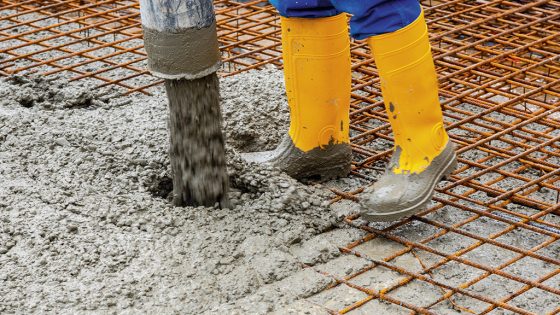The government has been urged to strengthen the resilience of the domestic mineral products supply chain as the latest data showed a weak start to the year for the sale of building materials.
According to the latest data from the Mineral Products Association (MPA), sales of ready-mixed concrete and asphalt both fell by 6.3 per cent in the first quarter of the year.
Demand for ready-mixed concrete declined to around 3 million cubic metres per quarter, its lowest level in 60 years, the MPA said.
Meanwhile, asphalt sales were at their lowest since 2013, due to the cancellation or delay of key strategic road schemes and the continuing financial squeeze on local authority maintenance budgets.
Primary aggregates – crushed rock and sand and gravel – recorded a modest increase of 0.5 per cent on the previous quarter.
Mortar was the top performer, with sales rising by 3.8 per cent – its fourth consecutive quarterly increase – signalling a tentative improvement in housebuilding activity.
But the MPA warned that wider housing market recovery remained highly sensitive to household confidence and borrowing conditions, with higher mortgage rates and increased economic uncertainty continuing to weigh on affordability and buyer sentiment.
On infrastructure, major projects such as HS2, Hinkley Point C and Sizewell C supported demand for construction mineral products, particularly aggregates and ready-mixed concrete, but this strength was offset by significant weakness in the roads sector, the MPA said.
“Overall, broader infrastructure activity remains patchy, with delays and cost pressures continuing to challenge project delivery across both public and private sectors,” it said.
Aurelie Delannoy, director of economic affairs at the MPA, said the figures showed the extent to which mineral products markets continued to struggle under the weight of heightened economic uncertainty and delayed investment decisions.
“While there are early signs of improvement in housebuilding, the broader construction pipeline remains fragile,” she said.
“New global risks, particularly the potential impact of US trade tariffs, add further pressures at a time when the UK urgently needs a resilient and competitive domestic supply chain to support the government’s green growth ambitions.”
The association’s executive chair Chris Leese said construction could not happen without a secure supply of mineral products and yet domestic production faced mounting pressures from both home and abroad.
“Without a clear commitment to supporting UK industry through competitive energy costs, better planning, and a public procurement policy that prioritises domestically produced mineral products like cement and concrete, the risk is that essential mineral extraction and products manufacturing capacity will be lost, just when the country needs it most,” he said.
“Government must act now to strengthen the foundations of growth and support an industry that supplies the essential materials underpinning the UK’s ambition to build and grow the economy.”
There was also a mixed picture in the latest government commentary on construction building materials, released by the Department for Business and Trade.
Sales of sand and gravel decreased by 7 per cent in the past three months compared with the final quarter of 2024, standing 3.9 per cent down on the same time last year.
“After recovering from the Covid-19 pandemic, from 2022 the general trend has been of a decline,” the commentary said.
“[Sales of sand and gravel] have consistently remained below levels typically seen before the recession of 2008 to 2009.”

